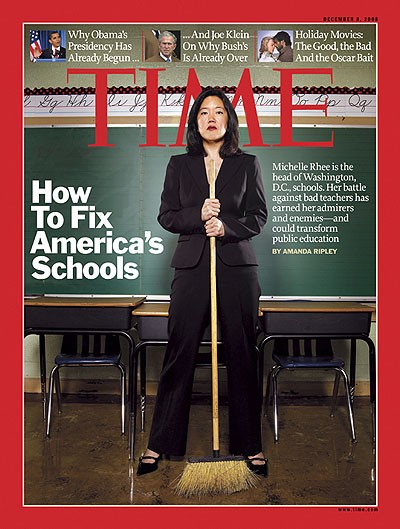H. L. Mencken said “Those who can, do. Those who can’t, teach.” There are several variations on that theme, from Woody Allen (“Those who can’t teach teach gym”) to the unknown cynic who said “Those who can’t teach administer.” Professional skeptic James Randi has collected several of them on his website.
Here’s one more: Those who neither do nor teach consult or tell others how to teach.
In nearly 30 years of on-and-off reporting on local schools, I can’t remember a time when there have been so many educational entrepreneurs, consultants, advocates, advisers, foundations, and reformers hovering around the Memphis and Shelby County public schools.
A list, probably incomplete, would include The Gates Foundation, the Hyde Foundation, the online education outfit K12, Teach Plus, Stand For Children, the MCS Teaching and Learning Academy, the consultants advising the suburbs on forming their own separate school systems, State Commissioner of Education Kevin Huffman, the Tennessee Charter Schools Association, the federal No Child Left Behind standards, Teach For America, The Council of the Great City Schools, the Memphis Urban League, the U.S. Education Department’s Race to the Top program, and at least a half dozen lawyers or law firms that weighed in on the consolidation process. Plus assorted PTAs, bloggers, columnists, and authors.
The newest addition to the mix is the Boston Consulting Group, which was chosen Thursday to advise the Transition Planning Commission. The consultants will be paid $1.7 million to prepare a merger plan by August 2012.
Some of these organizations put teachers in classrooms. Some of them advise from the sidelines. Some provide millions of dollars in funding. Some siphon teachers away from traditional schools. Some encourage parents and students to remain in traditional schools. Some help teachers network. Some measure the progress that teachers and their students are making, or are not making.
All are drawn to what is the biggest school system merger in American history. Teachers must feel like a patient with a mysterious disease who is prodded, poked, stared at, monitored, and tested by doctors at a hospital. They must long for the days when the PTA came through with classroom supplies, cookies, and a pat on the back.
How much actual reform there will be remains to be seen. It’s not great dog food if the dogs don’t eat it.
What we know for sure is this. Concerned parents will do whatever they have to do to get their kid into a good school. Suburbs are deadly serious about separate systems. “Choice” and “options” are other words for escape hatches. The hardest part of public education is teaching in urban schools, with 25-35 students in five classes a day. The fastest burnout is among classroom teachers. The pressing question for a classroom teacher is “what do I do Monday?” The stress is why they leave.
Now throw an observer, more paperwork, shorter planning periods, harder test standards, and longer hours into the job description. One of the best and most idealistic young teachers I know said “to heck with it” this semester, and it wasn’t because of the pay.
But at least there’s no shortage of advice.
